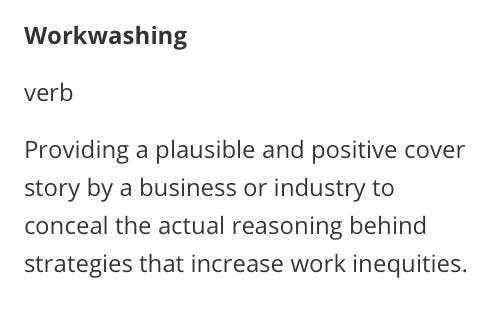Two Sorts Of Workwashing
Telling stories that might be or could be true to prop up work inequities.
David Gelles interviews Hayden Brown in How Freelancing Is Changing Work, who says some sensible things about the business scene and what the post-pandemic world of work might be, but as the CEO of Upwork, the freelancer platform, I think she is workwashing the rise of the gig economy:
Gelles: There’s a chicken-and-egg conundrum here. A…


